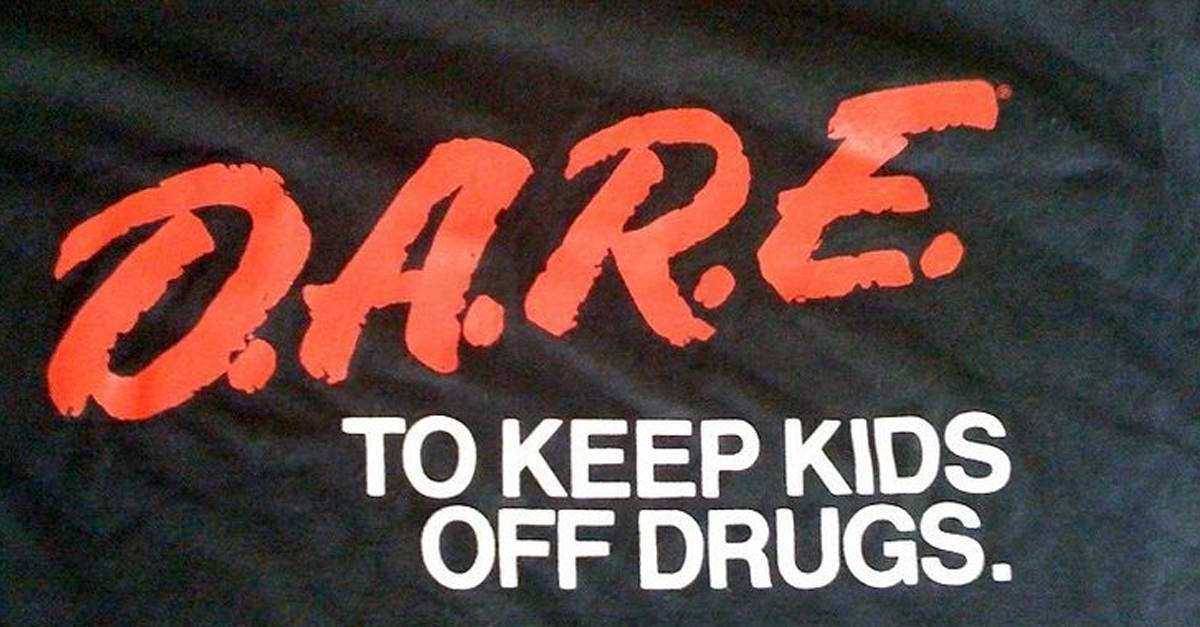After America had finally resolved to “just say no” to the D.A.R.E. program, anti-weed Attorney General Jeff Sessions wants to resurrect the iconic, yet failed Drug War propaganda.
Kids who grew up in the 1980s through early 2000s were bombarded with hyperbolic tales meant to scare them out of trying any drug, be it marijuana, LSD, or heroin. D.A.R.E. of course lost its credibility when kids began to realize that no, smoking weed, for instance, does not automatically turn you into a junkie. Real life experience invalidated D.A.R.E.’s curriculum for many teens, who saw that it was possible, at least for some people, to do drugs in moderation and maintain functionality. D.A.R.E. completely failed, doing little to curb teen drug use.
However, despite empirical evidence proving that D.A.R.E. didn’t work, Sessions clings to the delusion that it did.
“D.A.R.E. is, I think, as I indicated, the best remembered anti-drug program today,” he said at a D.A.R.E. training conference in Texas on Tuesday. “In recent years, people have not paid much attention to that message, but they are ready to hear it again. We know it worked before and we can make it work again.”
Though D.A.R.E. was founded in Los Angeles in 1983, Los Angeles Unified School District had readily admit that it was a failure and discontinued the program. “Being the organization that gave birth to D.A.R.E., we would also be the first to tell you that we would not recommend any schools to use D.A.R.E., nor do we allow it to be used in our district,” said Timothy Kordic, manager of LAUSD’s health-education programs. “The program D.A.R.E. gained a lot of popularity. However, the federal government who provided much of the funding for the implementation of ATOD {Alcohol, Tobacco and Other Drugs} prevention education also requires our curriculums/programs to be evidence-based and research-validated. The D.A.R.E. program has gone through two evaluations and both times were found to be ineffective and did not change the behavior of use.”

In fact, D.A.R.E. had gone through many more than just two evaluations from 1994 through 2012, each one pointing to the program’s incompetence. Nearly 20 years ago, the National Criminal Justice Reference issued a report to Congress, explaining just how futile the program actually was: “D.A.R.E. does not work to reduce substance use. The program’s content, teaching methods, and use of uniformed police officers rather than teachers might explain its weak evaluations.”
In 2009, the US Bureau of Justice Assistance declared: “To date, there have been more than 30 evaluations of the {D.A.R.E.} program that have documented negligible long-term impacts on teen drug use. One intensive six-year study even found that the program increased drug use among suburban teens by a small amount.”
Even the D.A.R.E. program itself recognized its own failure. In 2012, it collaborated with researchers at Penn State University and Arizona State University to revamp its curriculum, ditching the futile “Just Say No” slogan for “Keepin’ it REAL.” The idea was to replace scare tactics with an effort to change kids’ behaviors and attitudes toward drugs. The shift was so big, in fact, that Keith Humphreys, a Stanford drug policy expert, said the new iteration of the drug education program ceased to even be D.A.R.E. anymore.
Yet, Sessions, himself, fails to “keep it real,” instead choosing to remain out of touch with hard evidence, research, and up-to-date information about drug policy, science, and education.





